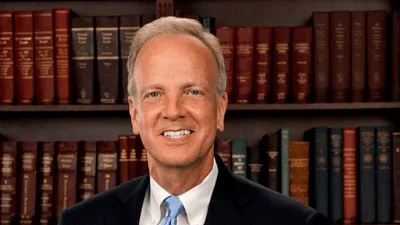The Congressional Record is a unique source of public documentation. It started in 1873, documenting nearly all the major and minor policies being discussed and debated.
“Equality Act (Executive Calendar)” mentioning Jerry Moran was published in the Senate section on page S1586 on March 17.
Of the 100 senators in 117th Congress, 24 percent were women, and 76 percent were men, according to the Biographical Directory of the United States Congress.
Senators' salaries are historically higher than the median US income.
The publication is reproduced in full below:
Equality Act
Mr. MORAN. Mr. President, today the Senate Judiciary Committee is considering a grave threat to the right of conscience. The House recently passed the Equality Act, which would demolish religious liberty protections, ironically making Americans of certain beliefs decidedly unequal under the law. In other words, for something called religious protections, the Equality Act would diminish the capability to be considered equal under the law.
It is not an accident of careless drafting that permits this outcome. The language is both so expansive and so explicit that it must be intentional and it must be intentionally hostile to people who hold such beliefs.
The language expands the definition of public accommodations to include prohibiting discrimination by ``any establishment that provides a good, service, or program, including a . . . food bank, service or care center, [or] shelter,'' and any organization receiving Federal funding. Religiously affiliated entities seeking to put their beliefs into action outside their church, mosque, or synagogue must comply.
The authors know such an expansive definition infringes on the constitutional rights of religious liberty. That is because this legislation would explicitly--explicitly--deny recourse to the Religious Freedom Restoration Act, or RFRA, a bill that was passed with overwhelmingly bipartisan majorities in both Chambers of Congress before being signed by President Bill Clinton in 1993.
This denial cuts off two legal paths for people of conscience. One, an individual or institution cannot sue the Federal Government to prevent enforcement of this act without statutory--explicit statutory--
authority of RFRA. And, two, the individual institution that is sued for discrimination under this bill cannot rely on RFRA as a defense
It is not an exaggeration to say that the five lines related to RFRA in this bill represent one of the most dramatic assaults against religious faith and conscience that I have seen in my time in Congress. The effects will be damaging to communities in Kansas and across the country.
If passed, people of faith must decide whether to adhere to their deeply held beliefs or to the law. This law effectively says it is better to have fewer doctors in rural Kansas, which desperately needs them, than it is to have doctors of moral conviction; that it is better to shutter social services administered by faith-based groups that fill gaps in our safety net than to allow them to remain true to their mission; or that it is better to force the closure of religious schools in urban areas, which so often provide a path out of poverty, than to allow them to remain open and teach principles of faith.
In response to the Obama contraception mandate a decade ago, I warned: ``If the government can compel an individual or group to violate one's conscience, then there is no limit to government power.'' That remains true now, nearly 10 years later, and remains true into the future.
I will oppose the use of such government power to infringe on matters of religious belief and conscience, and I stand in opposition to the Equality Act.
I yield the floor.
I suggest the absence of a quorum.
The PRESIDING OFFICER. The clerk will call the roll.
The legislative clerk proceeded to call the roll.
Mr. CORNYN. Mr. President, I ask unanimous consent that the order for the quorum call be rescinded.
The PRESIDING OFFICER. Without objection, it is so ordered.



 Alerts Sign-up
Alerts Sign-up